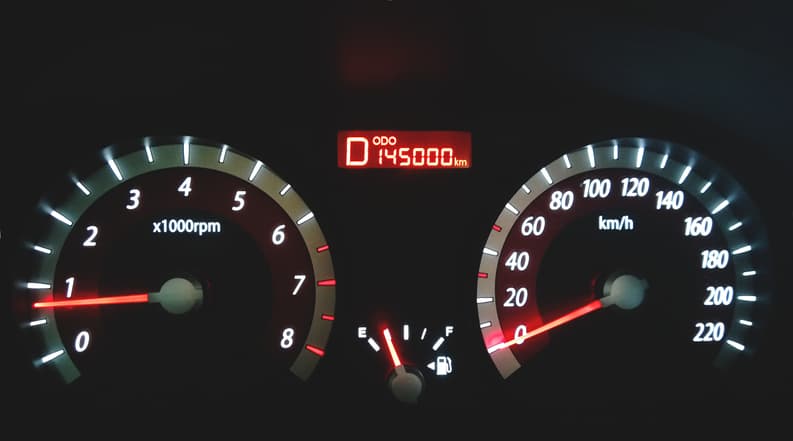How To Spot A Clocked Car
What To Watch Out For

As the good guys of car insurance we have done some research on the topic and gathered together some facts about car clocking that might help put your mind at ease when it comes to buying your new car.
What Is Car Clocking?
Car clocking, or mileage recalibration, involves changing the mileage figure displayed on your odometer. This is usually done to lower the figure displayed on the dashboard. This is sometimes done if the mileage of the vehicle in question is higher than average which can affect the resale value of the vehicle.
Recognising A Car That Is Clocked
Recognising a car that has had its odometer changed can be difficult as the process itself has been made easier in part thanks to the onset of digital displays.
There are certain checks that you can arrange yourself to ensure that your potential new motor stands up to scrutiny.
- Check the car’s history via a recognised car history checker.
- Get a recognised 3rd party mechanic to check the car.
- Ask for all documentation related to the vehicle so that you can get it checked by a recognised body.
- Check for any wear and tear on the vehicle that doesn't seem consistent with a car that has the number of miles advertised. This can usually be done by the 3rd party mechanic..
- A simple check on the steering wheel and driver's seat of the car will give you an idea if the car has been used more than the odometer might suggest. This method can be slightly subjective as you are basing your decision on what you think is over use on these specific parts.
Why You Need To Check
As we mentioned already it is now illegal to clock cars and but there are some other reasons why you need to check. Misleading mileage can give you the false impression that certain parts, such as timing belts, don’t require a service or need to be replaced.
Reporting A Clocked Car
According to the Competition and Consumer Protection Commission of Ireland, if you suspect that a car has been clocked, you should report it as soon as you can. They also have a contact section on their site that you can report any suspicions to as well. The statute of limitations on investigating any suspect cars, by the national consumer agency, is two years so if you do suspect anything make sure you report it as soon as possible.
Buying Privately vs With A Registered Dealership
It's well documented that the new car market is suffering at the moment, whilst the second-hand market is booming as people look to make savings where they can. This has generated a lot of debate about the benefits of going to a dealership registered with The Society of the Irish Motor Industry (SIMI) as opposed to a private individual.
It's important to remember that by going to a SIMI registered dealer, you will have a fallback in case there's something wrong with the car. You can typically get a good length warranty and have greater legal backing, but all of this means that you're likely to pay more for the car. Whilst a SIMI registered dealer will provide you with a certain level of comfort, we should point out that the vast majority of people selling cars privately do it honestly. But there's undoubtedly a minority who are out to scam people.
Although clocking cars is now illegal, don’t let the figures and statistics make you distrustful of any car dealer when it comes to purchasing a second hand car. Doing these advanced checks can sometimes help you uncover a hidden gem of a car that will be reliable for years to come.
However, when it comes to deals seeming too good to be true, then they probably are, and you should avoid buying the car altogether - after all, there are countless amazing used cars out there to purchase, so the risk very often is not worth it.
